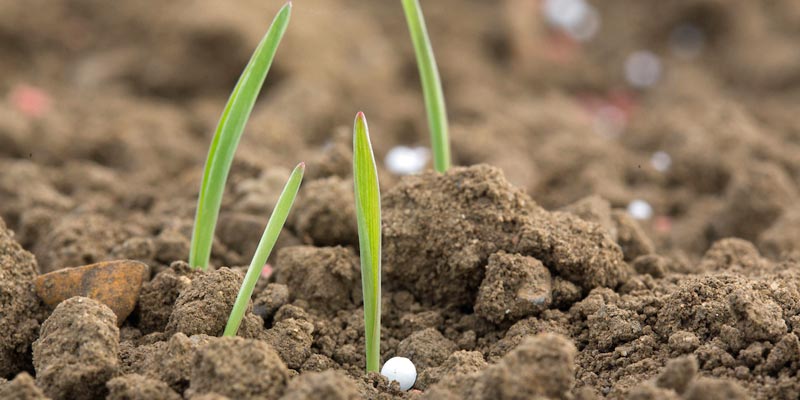Why fertiliser has been a hot topic in the news this week

There has been widespread discussion in the media about fertilisers this week - from what they are made of and how they're produced, to the important role they play in supporting global food security.
All this week BBC Radio 4's Farming Today programme has been looking at fertilisers, and AIC's Head of Fertilisers Jo Gilbertson was invited on to Monday's (16 January) show to talk about mineral fertilisers.
To listen back to the episode, go to the BBC Sounds website or app, or wherever you get your podcasts from.
Prolonged market volatility
Jo told the Farming Today programme's Charlotte Smith that global demand for mined minerals was very strong, which has contributed to rising prices.
"There is a huge demand for fertilisers globally - [especially] phosphate and potassium, [which are] naturally sourced by mining or quarrying, are in high demand.
"China, India, and South America are huge markets for these fertilisers, so they've been pushing prices up generally.
"Russia and Belarus traditionally have been major providers of these minerals and because of the conflict in Ukraine, they've been become more expensive."
Meanwhile, producers of nitrogen fertiliser have been severely impacted since the wholesale price of natural gas began to rise significantly in the months before, and ever since, the war in Ukraine.
Nitrogen fertiliser is made by a chemical reaction using natural gas and as prices hit unprecedented levels in 2022, fertiliser plants in the UK and Europe had to periodically interrupt production.
"The hike in gas prices last year caused many nitrogen fertiliser factories to interrupt production," explained Jo.
"The gas price now seems to be stabilising, so we're hoping for some stability maybe in the next couple of weeks which could indicate that fertiliser production may be recommencing in Europe."
Energy support
Last year AIC lobbied the Government on the support it was giving to businesses to help them manage high energy bills.
The Government recently announced the launch of its new Energy Bills Discount Scheme from April 2023, offering substantially higher levels of support to energy intensive industries, including fertiliser producers.
"We are in regular contact with Defra [on this issue], I meet with them twice a week, [and fertiliser supply] is very much a hot topic," added Jo.
Wider discussion
Also contributing to the discussion on fertilisers this week was the President and Chief Executive Officer of fertiliser company Yara.
Svein Tore Holsether who told the World Economic Forum in Davos that countries needed to cut their reliance on Russia after its invasion of Ukraine hit global food supplies and prices.
Mr Holsether accused Russian President Vladimir Putin of "weaponising food" - read the full story here.
Meanwhile the Chair of liquid fertiliser importer Brineflow, John Fuller, told BBC Radio 4's Farming Today that the company is spending tens of millions of pounds setting up a new import facility in Sunderland.
Mr Fuller discussed the advantages of using liquid fertiliser, along with nitrogen fertiliser's key role in producing food to feed the world. Listen to the full episode here.
Also speaking to Farming Today this week was agronomy group Agrovista, which is trialling companion cropping - growing oats and wheat with a crop of beans to fix nitrogen in the soil instead of applying fertilisers.
Niall Atkinson, Farming Systems Research and Development Advisor at Agrovista's Lamport AgX trials site in Northamptonshire, explained how companion cropping may help with sustainable rotations, soil health, and having a balanced use of nitrogen fertilisers. Catch up on the full episode here.
Listen to all the Farming Today episodes on the BBC Sounds website, or wherever you get your podcasts.
More on fertilisers
Plants and crops that produce our food need the right balance of nutrients to grow successfully and produce the desired quality and quantity.
In short, fertilisers feed the plants that feed people and animals right across the world. Without fertilisers, over half of the global population could starve.
Watch AIC's video below to find out more.



